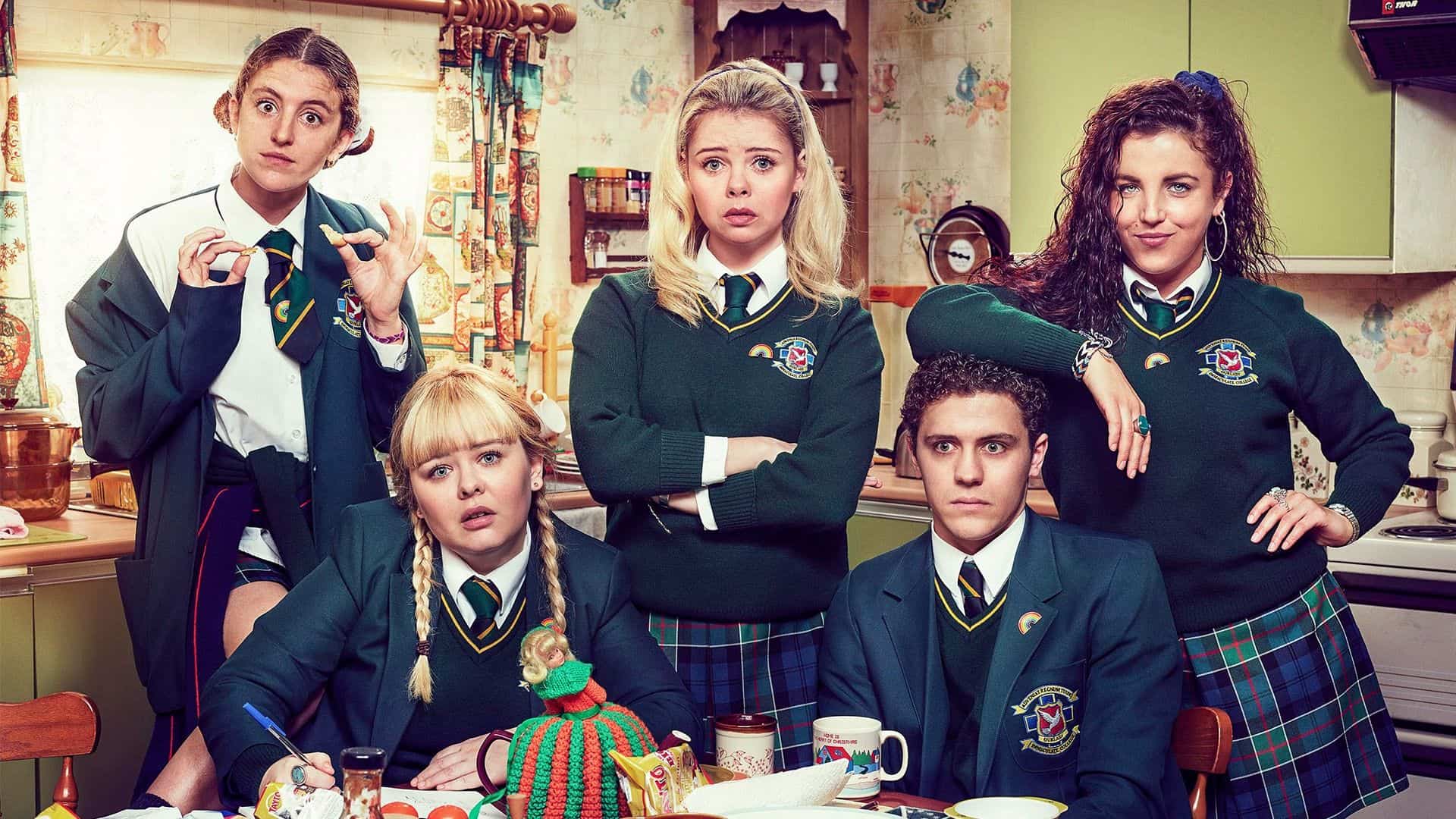On October 7th, Netflix released the third season of the acclaimed Irish comedy, Derry Girls. The series follows five working-class friends from three families (Erin, Orla, Clare, Michelle, and James) going through Catholic high school in Derry (or Londonderry, depending on who you ask) during the 1990s. As a good Irish boy, I watched through the first two seasons during the summer of 2020 and waited eagerly for the premier of the third season for two years. And it did not disappoint.
The third season continues with the same witty writing, each episode devoting time both to the girls (and James) as well as to the adults in Erin and Orla’s extended family. The girls go through many teenage moments: exams that determine if/where they can go to college, falling in love, trying to go to a concert, and so on. They are trying to enjoy the remaining years of adolescence, knowing adulthood is right around the corner. Unfortunately, they all have the sense that life doesn’t have many opportunities waiting for them. As Clare reminds the group in the first episode, “We’re girls. We’re poor. We’re from Northern Ireland. We’re Catholic, for Christ’s sake!”
However, what sets this series apart from other family-based sitcoms is the setting. The series takes place in Derry, County Derry during the final years of a war between the Irish Catholics and Protestants, often known respectively as the Unionists and Loyalists. The war, called the Troubles, lasted from the late 1960s through 1998 (when our series ends). The armed conflict between these two groups is always in the background of the series.
Throughout the first two seasons, moments involving the Troubles are more subtle—simply acknowledged as part of the world the girls (and their parents) have grown up in. In the third season, the conflict is more apparent from the beginning of the season. In that story, the girls are arrested for breaking into the school to try and get their exam grades early. Tensions are high, as the Protestant police question our Catholic teenagers who (rightly) claim that the system disenfranchises Catholics. Though the situation is diffused comedically, the dangerous tension between the two groups remains.
In the series’ final episode, set at the end of the girls’ final year in high school, the Irish get to vote on whether to ratify the Good Friday Agreement, which gave Northern Ireland the opportunity for self-government and ended the violence of the Troubles. Conflict arises among the girls around what the agreement would do with people who killed innocents on the other side during the conflict. While the episode itself does not linger on the ethical aspects of the question, what it does illustrate is that, even though the measure passed overwhelmingly, it was not an easy process with a straightforward answer.
The series itself ends with a sense of hope. As the Good Friday Agreement is ratified and the girls make up, there is a sense that things will work out. Erin says, “Things can’t stay the same, and they shouldn’t.” They are becoming adults, and the society they live in is changing. What worked and was comfortable before will not suffice, and they have the maturity to recognize that reality. The girls will have to face a harsh world, one that will not be what they would like it to be.
So much of this is present in our own world: Countries are at war, people struggle against poverty and disease worldwide, and there are protests against unjust systems. It can be easy to wonder if things will get better when we look at the difficulties. But there is always hope, even though the world will never quite be what we want it to be. Again, Erin offers some good advice in the closing minutes of the series. “If our dreams get broken along the way, we’ll have to make new ones from the pieces.” There are times when we can feel like our hopes and dreams have been shattered like on Good Friday, but it’s important to remember that the story doesn’t end there. If these girls can find hope amidst a troubled world, perhaps we can too.


